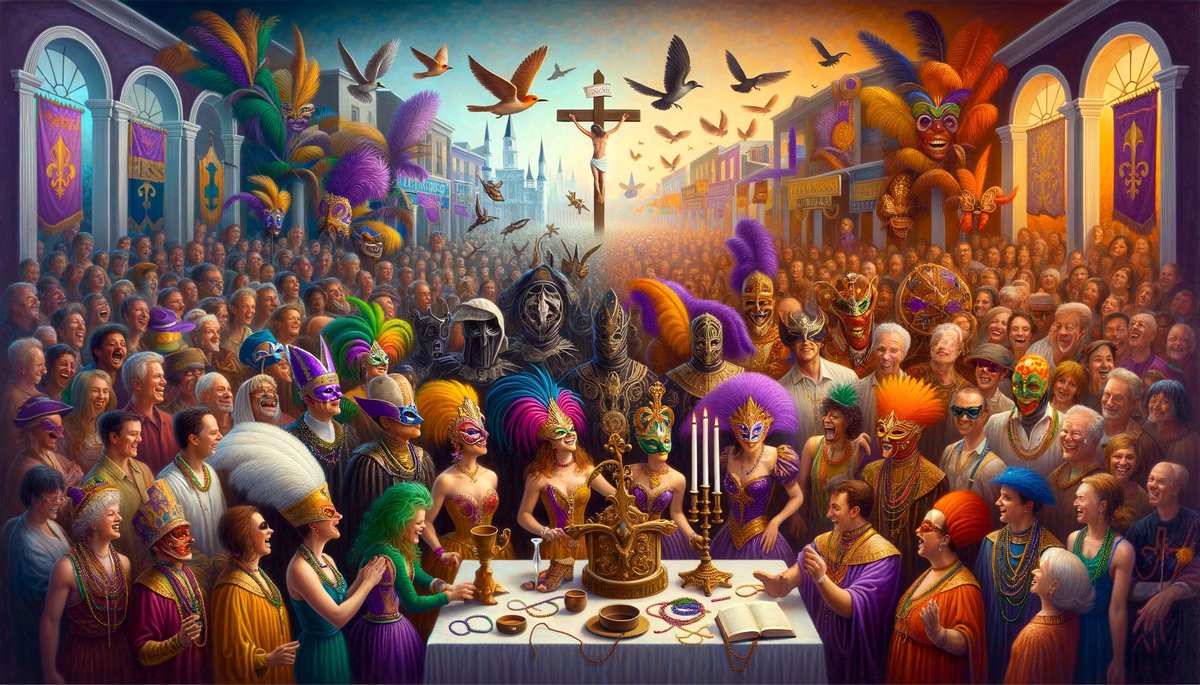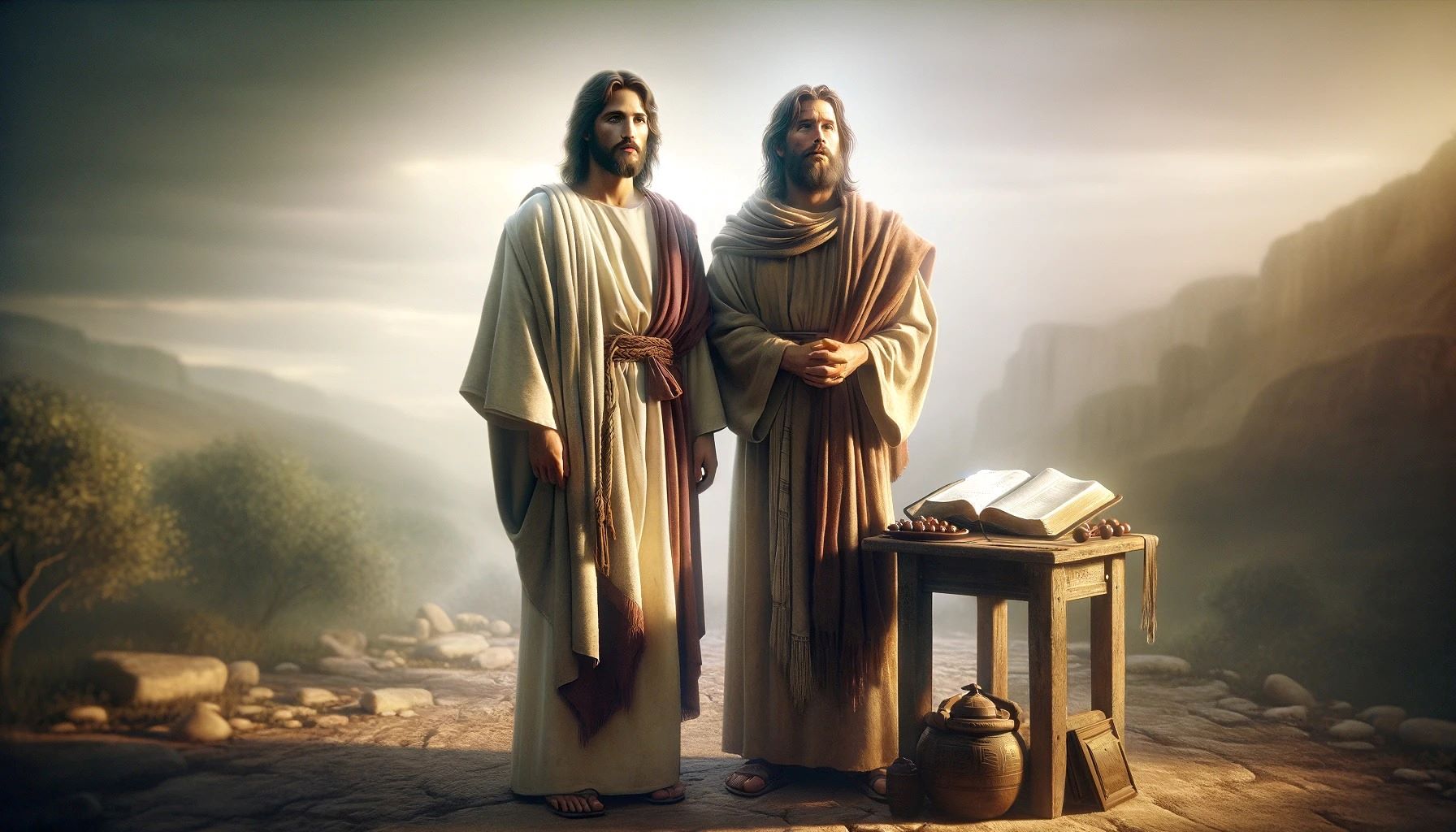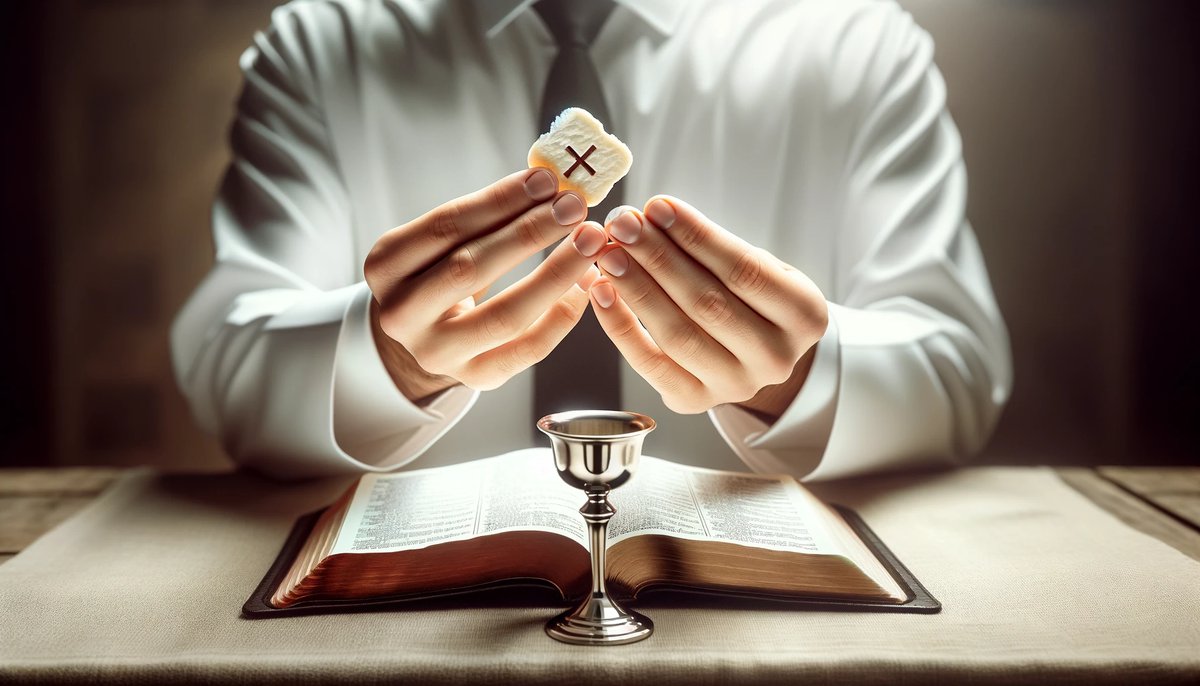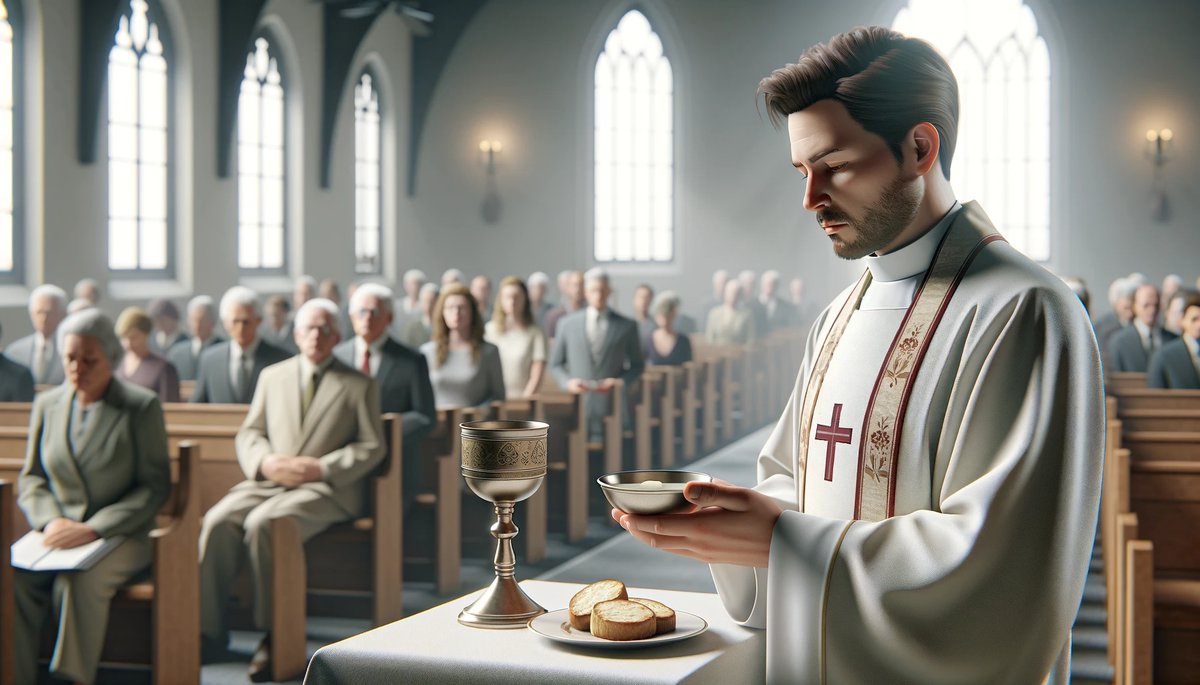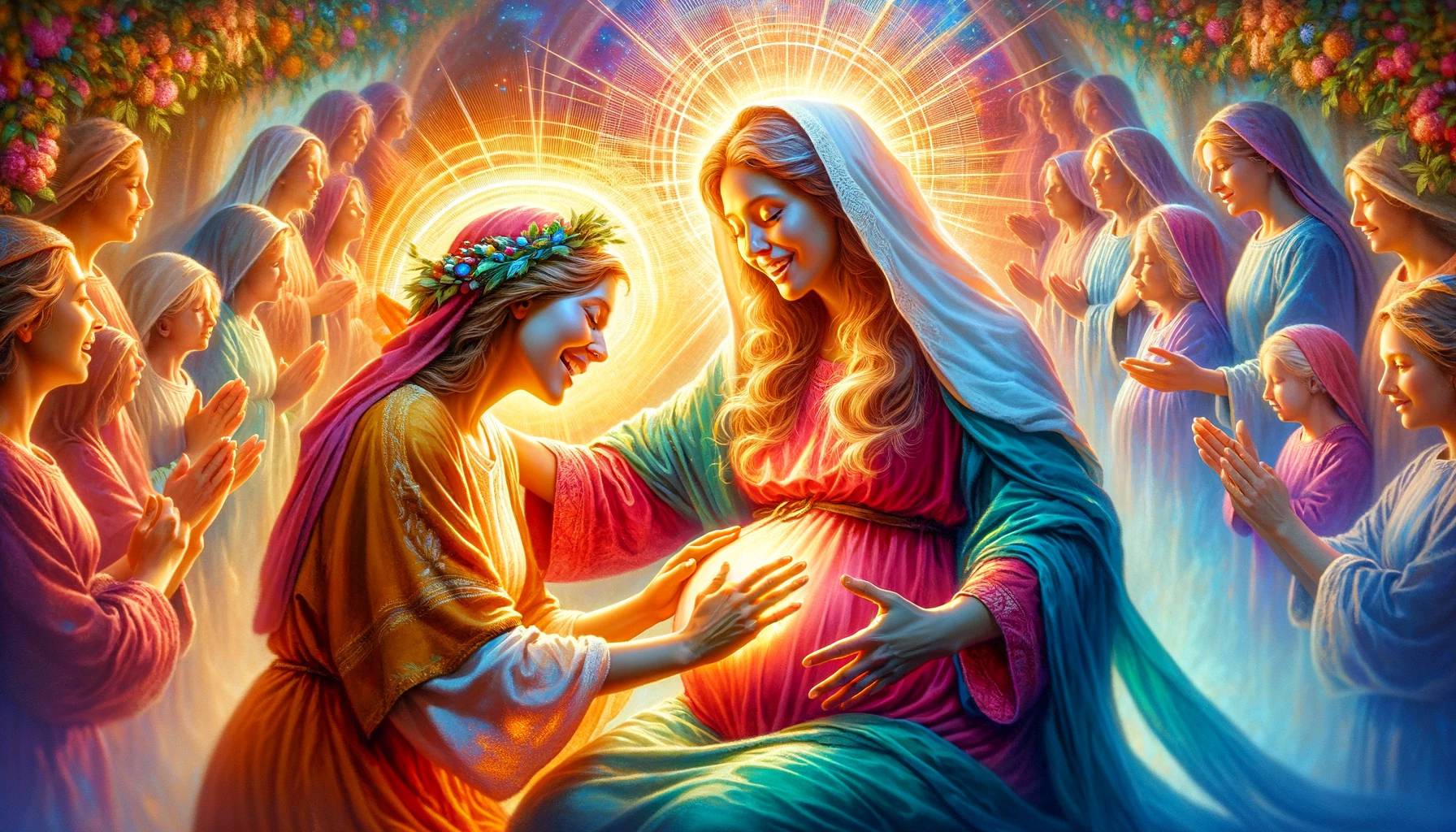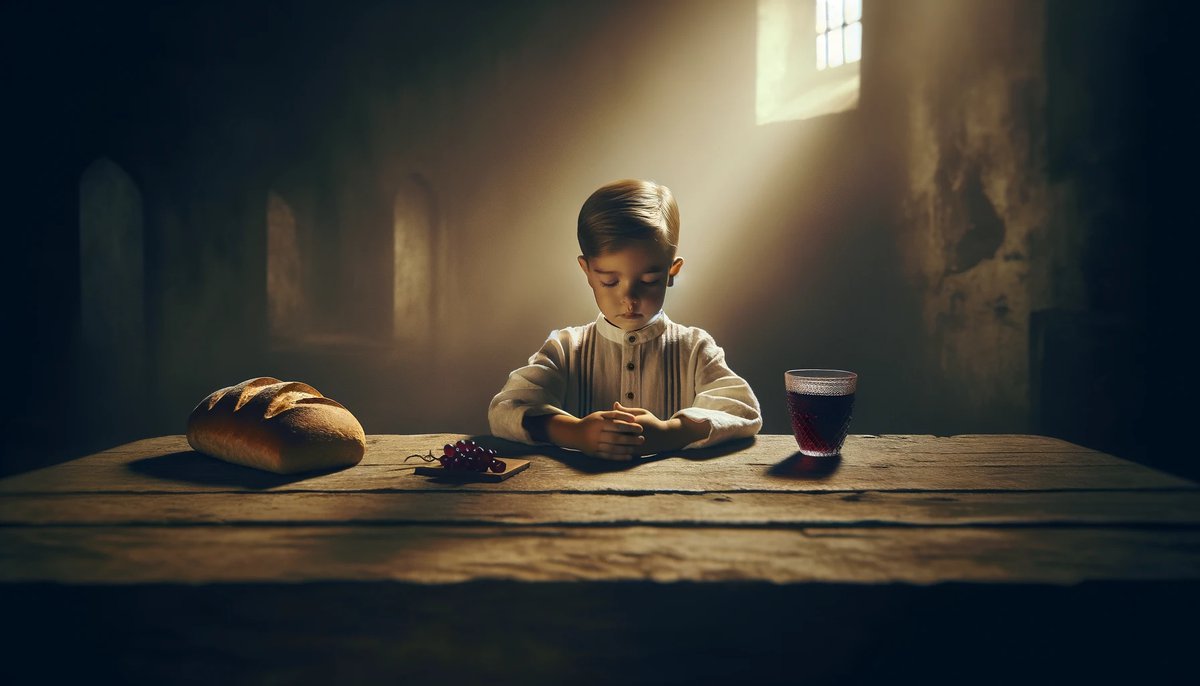Home>Theology and Spirituality>How Is Communion Related To Marriage?


Theology and Spirituality
How Is Communion Related To Marriage?
Published: February 24, 2024
Ericka Andersen, an editor at Christian.net, expertly merges digital strategy with content creation, focusing on faith and societal issues. Her communication skills enhance the platform's engaging narratives, fostering meaningful dialogue on belief's impact on society.
Discover the theological connection between communion and marriage in this insightful exploration of spirituality and faith. Explore the profound relationship between these two sacred aspects of Christian life.
(Many of the links in this article redirect to a specific reviewed product. Your purchase of these products through affiliate links helps to generate commission for Christian.net, at no extra cost. Learn more)
Table of Contents
Introduction
Marriage and communion are two deeply meaningful and sacred concepts that hold significant importance in both religious and spiritual contexts. The intertwining of these two concepts can be a source of profound insight and spiritual reflection. In this article, we will explore the rich symbolism of communion in the context of marriage, delving into the spiritual, emotional, and symbolic connections that bind these two fundamental aspects of human experience.
The union of marriage is often described as a sacred bond between two individuals, a commitment to love, honor, and cherish one another. Similarly, communion is a sacred ritual in many religious traditions, symbolizing the spiritual union between the individual and the divine. By examining the parallels between communion and marriage, we can gain a deeper understanding of the spiritual significance of both practices and the profound connections they share.
Throughout history, marriage has been revered as a sacred institution, a union that transcends the physical and emotional realms to encompass a spiritual bond. Likewise, communion is a spiritual practice that transcends the material world, providing a means for individuals to connect with the divine and experience a profound sense of spiritual nourishment and unity. By exploring the intersection of these two sacred concepts, we can uncover the rich symbolism and spiritual depth that underpin both marriage and communion.
As we embark on this exploration, it is important to approach the topic with an open heart and mind, recognizing the diverse interpretations and beliefs surrounding marriage and communion. Whether viewed through the lens of religious tradition, spiritual symbolism, or personal experience, the connection between communion and marriage offers a wealth of insight into the profound mysteries of human connection, spiritual union, and divine love.
Read more: How Is Baptism And Confirmation Related
The Symbolism of Communion in Marriage
The symbolism of communion in marriage encompasses a profound intertwining of spiritual, emotional, and symbolic elements that enrich the marital union. At its core, communion represents a sacred act of sharing and partaking in a spiritual bond, mirroring the essence of a marital relationship. Just as communion involves the sharing of bread and wine, symbolizing the body and blood of Christ, marriage involves the sharing of lives, dreams, and aspirations, symbolizing the unity of two individuals.
In the act of communion, individuals come together to partake in a shared spiritual experience, reflecting on the sacrifice and love embodied in the ritual. Similarly, in marriage, couples embark on a shared journey of love, sacrifice, and mutual support, drawing strength from their shared experiences and the spiritual bond that unites them. The act of communion thus serves as a poignant symbol of the shared spiritual nourishment and sustenance that underpins the marital relationship, emphasizing the importance of spiritual unity and mutual support in the journey of marriage.
Furthermore, communion symbolizes unity and commitment, echoing the foundational principles of marriage. As individuals partake in communion, they affirm their faith and commitment to their spiritual beliefs, finding unity in their shared devotion. Similarly, in marriage, couples affirm their commitment to one another, finding unity in their shared love, trust, and dedication. The act of communion thus serves as a powerful symbol of the unity and commitment that form the bedrock of a marital union, emphasizing the sacred bond and mutual dedication that bind two individuals together in love and faith.
Moreover, communion serves as a reflection of Christ's relationship with the church, offering a profound parallel to the spiritual dynamics of marriage. In the Christian tradition, communion symbolizes the spiritual union between Christ and the church, embodying the selfless love and sacrificial devotion that define this divine relationship. Similarly, marriage reflects the spiritual union between two individuals, embodying the selfless love, sacrificial devotion, and spiritual unity that define a loving marital bond. The symbolism of communion thus offers a poignant reflection of the spiritual dynamics at play in marriage, highlighting the profound parallels between the divine love of Christ and the earthly love shared between spouses.
In essence, the symbolism of communion in marriage encapsulates a rich tapestry of spiritual, emotional, and symbolic elements that enrich and elevate the marital union. By drawing parallels between the shared spiritual experience, unity, commitment, and reflection of divine love embodied in communion and the dynamics of marriage, we gain a deeper appreciation for the profound spiritual significance of both practices. This exploration invites us to contemplate the sacred interplay of love, faith, and unity that binds individuals together in marriage, offering a glimpse into the profound mysteries of human connection and spiritual union.
Communion as a Shared Spiritual Experience
Communion, within the context of marriage, embodies a profound and shared spiritual experience that transcends the physical realm and delves into the depths of emotional and symbolic connection. At its core, communion serves as a sacred ritual that fosters a collective spiritual bond, mirroring the essence of a marital relationship. The act of partaking in communion is a deeply personal yet communal experience, where individuals come together to share in the sacred elements of bread and wine, symbolizing the body and blood of Christ. This act of sharing and partaking in a spiritual bond reflects the essence of a marital relationship, where two individuals come together to share their lives, dreams, and aspirations, symbolizing the unity of their union.
In the act of communion, individuals engage in a shared spiritual nourishment and sustenance, reflecting on the sacrifice and love embodied in the ritual. This shared experience fosters a sense of spiritual unity and mutual support, echoing the foundational principles of a marital relationship. Similarly, in marriage, couples embark on a shared journey of love, sacrifice, and mutual support, drawing strength from their shared experiences and the spiritual bond that unites them. The act of communion thus serves as a poignant symbol of the shared spiritual nourishment and sustenance that underpins the marital relationship, emphasizing the importance of spiritual unity and mutual support in the journey of marriage.
Furthermore, communion symbolizes unity and commitment, echoing the foundational principles of marriage. As individuals partake in communion, they affirm their faith and commitment to their spiritual beliefs, finding unity in their shared devotion. Similarly, in marriage, couples affirm their commitment to one another, finding unity in their shared love, trust, and dedication. The act of communion thus serves as a powerful symbol of the unity and commitment that form the bedrock of a marital union, emphasizing the sacred bond and mutual dedication that bind two individuals together in love and faith.
In essence, communion as a shared spiritual experience within the context of marriage encapsulates a rich tapestry of spiritual, emotional, and symbolic elements that enrich and elevate the marital union. By drawing parallels between the shared spiritual experience, unity, commitment, and reflection of divine love embodied in communion and the dynamics of marriage, we gain a deeper appreciation for the profound spiritual significance of both practices. This exploration invites us to contemplate the sacred interplay of love, faith, and unity that binds individuals together in marriage, offering a glimpse into the profound mysteries of human connection and spiritual union.
Communion as a Symbol of Unity and Commitment
Communion serves as a powerful symbol of unity and commitment, echoing the foundational principles of marriage. When individuals partake in communion, they affirm their faith and commitment to their spiritual beliefs, finding unity in their shared devotion. This act of coming together to partake in the sacred elements of bread and wine symbolizes the unity of the community of believers, reflecting a collective commitment to their shared spiritual journey.
Similarly, in marriage, couples affirm their commitment to one another, finding unity in their shared love, trust, and dedication. The act of communion thus serves as a poignant symbol of the unity and commitment that form the bedrock of a marital union, emphasizing the sacred bond and mutual dedication that bind two individuals together in love and faith.
The act of partaking in communion is a deeply personal yet communal experience, fostering a sense of spiritual unity and mutual support. This shared experience mirrors the essence of a marital relationship, where two individuals come together to share their lives, dreams, and aspirations, symbolizing the unity of their union. Just as communion represents the coming together of individuals in a shared spiritual bond, marriage represents the coming together of two individuals in a shared life journey, bound by love, trust, and mutual support.
Furthermore, the act of communion embodies a profound sense of commitment to one's spiritual beliefs and community, reflecting the selfless love and sacrificial devotion that define the spiritual journey. Similarly, in marriage, couples demonstrate their commitment to one another, pledging to navigate life's joys and challenges together, and to uphold their vows of love and fidelity.
In essence, communion as a symbol of unity and commitment within the context of marriage encapsulates the profound spiritual and emotional depth of the marital union. By drawing parallels between the unity, commitment, and shared devotion embodied in communion and the dynamics of marriage, we gain a deeper appreciation for the sacred bond that unites individuals in love and faith. This exploration invites us to contemplate the sacred interplay of unity and commitment that underpins the journey of marriage, offering a glimpse into the profound mysteries of human connection and spiritual union.
Communion as a Reflection of Christ's Relationship with the Church
Communion serves as a profound reflection of Christ's relationship with the church, offering a poignant parallel to the spiritual dynamics of marriage. In the Christian tradition, communion symbolizes the spiritual union between Christ and the church, embodying the selfless love and sacrificial devotion that define this divine relationship. The act of partaking in communion, where individuals share in the sacred elements of bread and wine, symbolizing the body and blood of Christ, mirrors the essence of the spiritual bond between Christ and the church.
Just as communion represents the spiritual nourishment and sustenance derived from the body and blood of Christ, the relationship between Christ and the church is characterized by the outpouring of divine love and grace, providing spiritual nourishment and sustenance to the faithful. The act of communion thus becomes a tangible expression of this spiritual nourishment, inviting believers to partake in the divine love and grace that flow from Christ to the church.
Moreover, communion embodies the selfless love and sacrificial devotion exemplified by Christ, who offered himself as a living sacrifice for the redemption and salvation of humanity. In partaking of the bread and wine, believers are reminded of Christ's ultimate sacrifice and the profound depth of his love for the church. This act of remembrance and participation in Christ's sacrifice fosters a deep sense of spiritual connection and gratitude, strengthening the bond between the individual and the divine.
In the context of marriage, the reflection of Christ's relationship with the church through communion holds significant parallels. The selfless love, sacrificial devotion, and spiritual nourishment embodied in communion find resonance in the dynamics of a marital relationship. As couples partake in communion, they are reminded of the profound love and sacrifice demonstrated by Christ, inspiring them to emulate these virtues in their own relationship. The spiritual union between Christ and the church becomes a guiding light for couples, illuminating the path of selfless love, sacrificial devotion, and spiritual unity in their marital journey.
In essence, communion as a reflection of Christ's relationship with the church encapsulates a rich tapestry of spiritual symbolism and divine love, offering profound insights into the spiritual dynamics of marriage. By drawing parallels between the selfless love, sacrificial devotion, and spiritual nourishment embodied in communion and the dynamics of marriage, we gain a deeper appreciation for the sacred bond that unites individuals in love, faith, and divine grace. This exploration invites us to contemplate the sacred interplay of Christ's love for the church and the spiritual union between spouses, offering a glimpse into the profound mysteries of human connection and spiritual union.
Read more: How To Convert To Catholicism For Marriage
Conclusion
In conclusion, the intertwining of communion and marriage reveals a tapestry of profound spiritual, emotional, and symbolic connections that enrich and elevate the sacred union between individuals. The symbolism of communion in the context of marriage serves as a powerful reminder of the shared spiritual experience, unity, commitment, and reflection of divine love that underpin the marital relationship.
Through the act of partaking in communion, individuals engage in a shared spiritual nourishment and sustenance, fostering a sense of spiritual unity and mutual support. This shared experience mirrors the essence of a marital relationship, where two individuals come together to share their lives, dreams, and aspirations, symbolizing the unity of their union. The act of communion thus becomes a poignant symbol of the shared spiritual nourishment and sustenance that underpins the marital relationship, emphasizing the importance of spiritual unity and mutual support in the journey of marriage.
Furthermore, communion serves as a powerful symbol of unity and commitment, echoing the foundational principles of marriage. Just as individuals affirm their faith and commitment to their spiritual beliefs through communion, couples affirm their commitment to one another in marriage, finding unity in their shared love, trust, and dedication. The act of communion thus becomes a tangible expression of the unity and commitment that form the bedrock of a marital union, emphasizing the sacred bond and mutual dedication that bind two individuals together in love and faith.
Moreover, communion serves as a profound reflection of Christ's relationship with the church, offering insights into the spiritual dynamics of marriage. The selfless love, sacrificial devotion, and spiritual nourishment embodied in communion find resonance in the dynamics of a marital relationship, inspiring couples to emulate these virtues in their own journey. The spiritual union between Christ and the church becomes a guiding light for couples, illuminating the path of selfless love, sacrificial devotion, and spiritual unity in their marital bond.
In essence, the symbolism of communion in marriage invites us to contemplate the sacred interplay of love, faith, and unity that binds individuals together in marriage, offering a glimpse into the profound mysteries of human connection and spiritual union. It serves as a testament to the enduring power of love, faith, and spiritual unity in the sacred journey of marriage, enriching the bond between individuals and offering a source of profound spiritual nourishment and strength.



